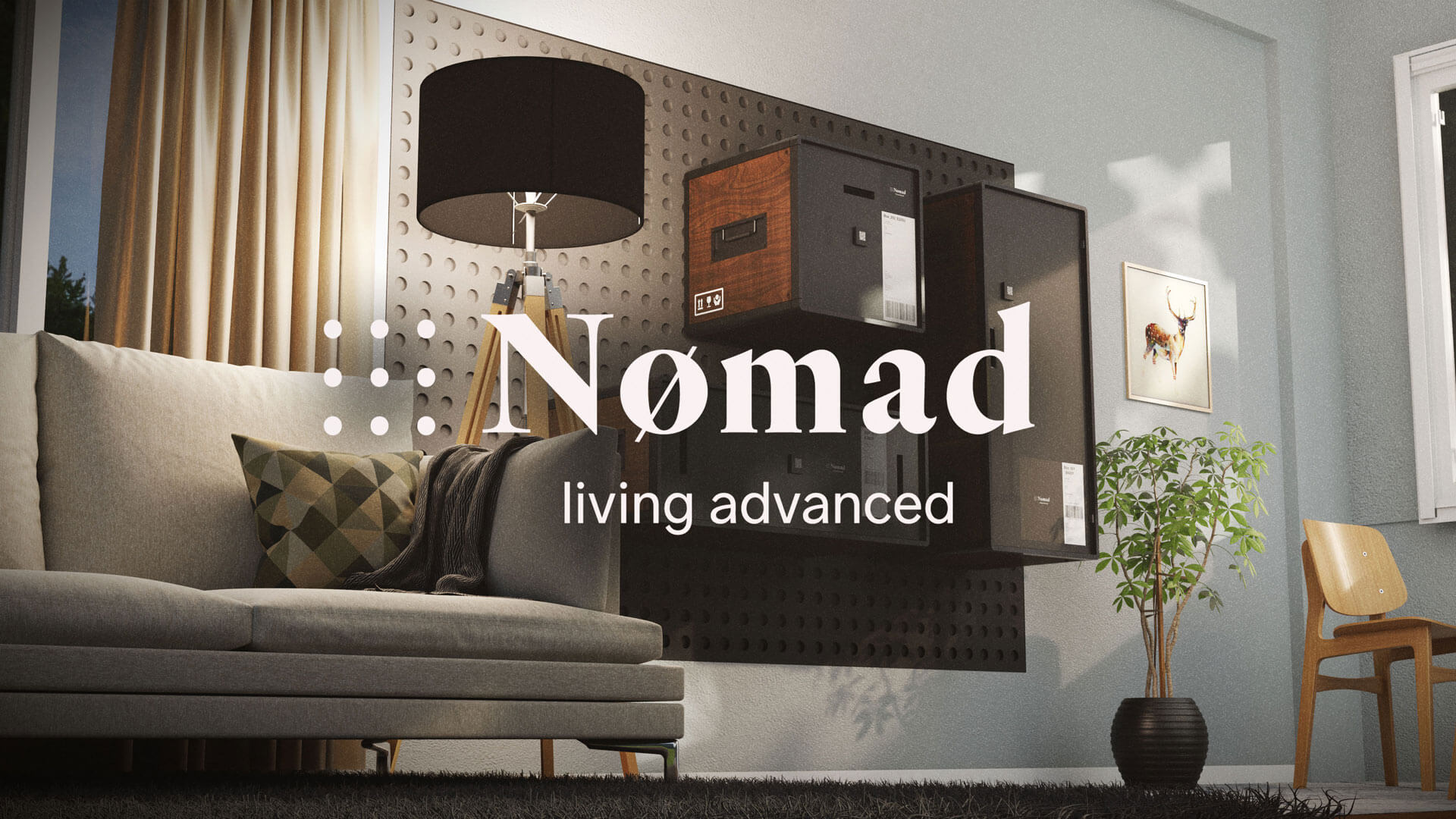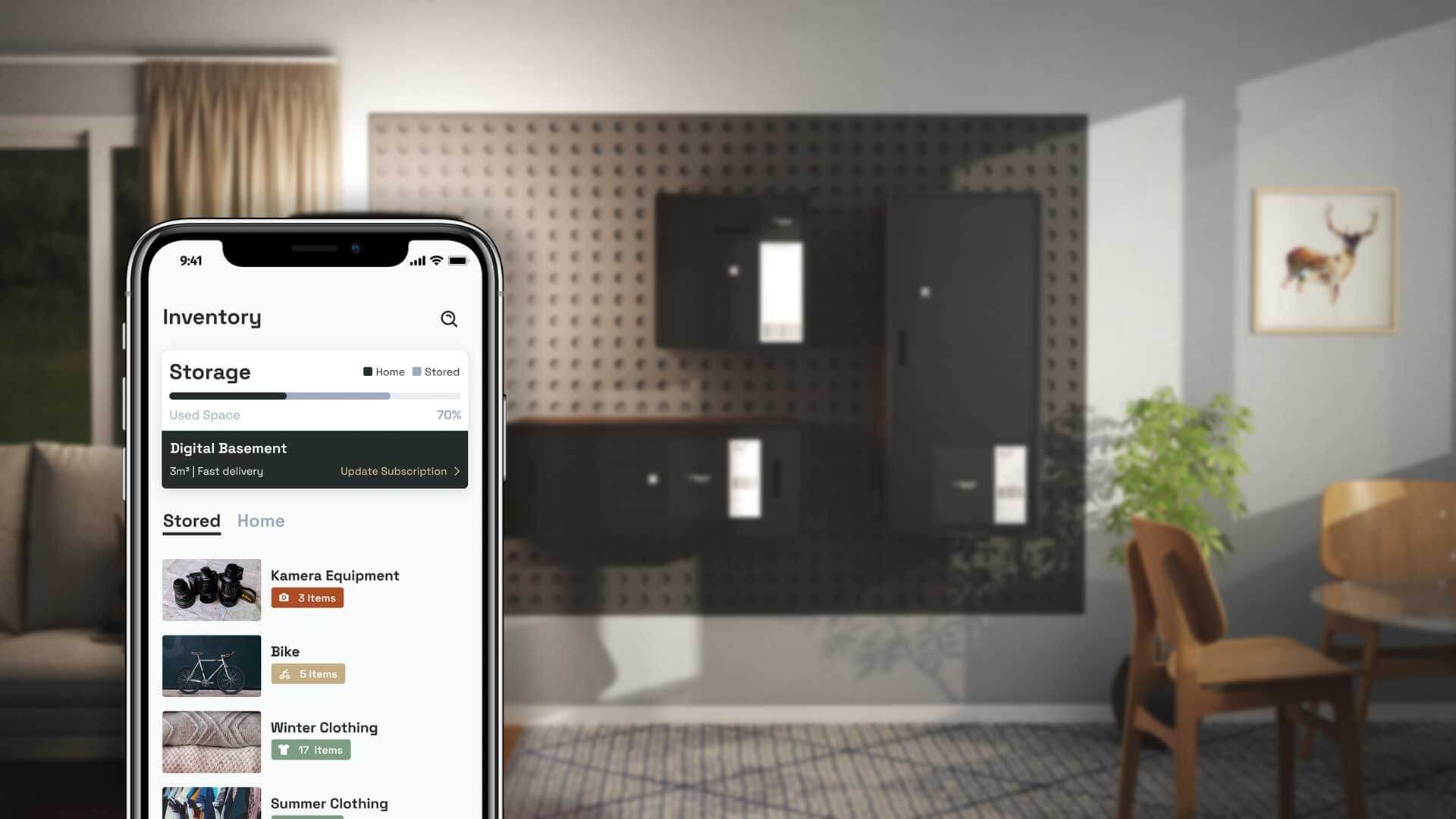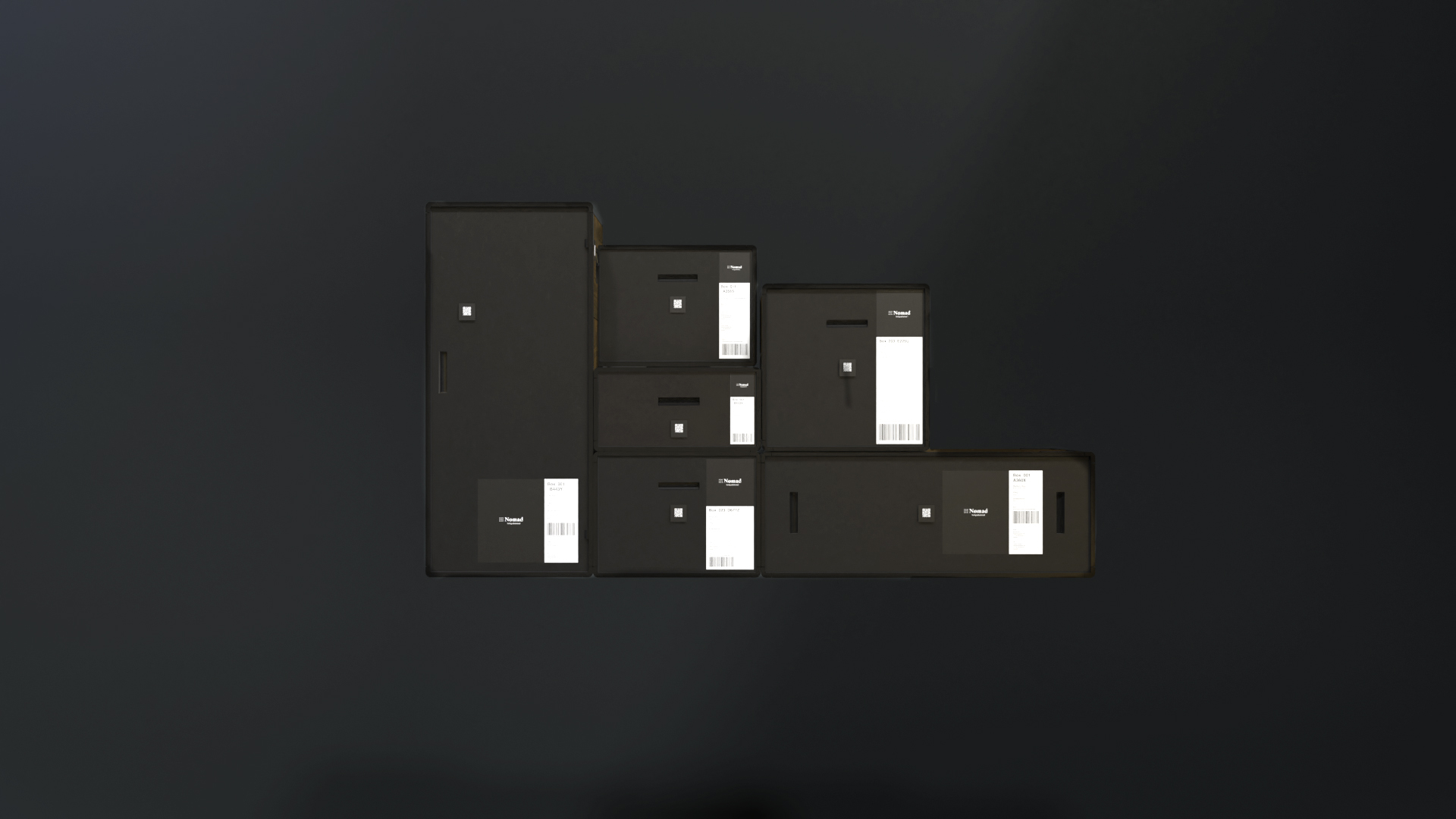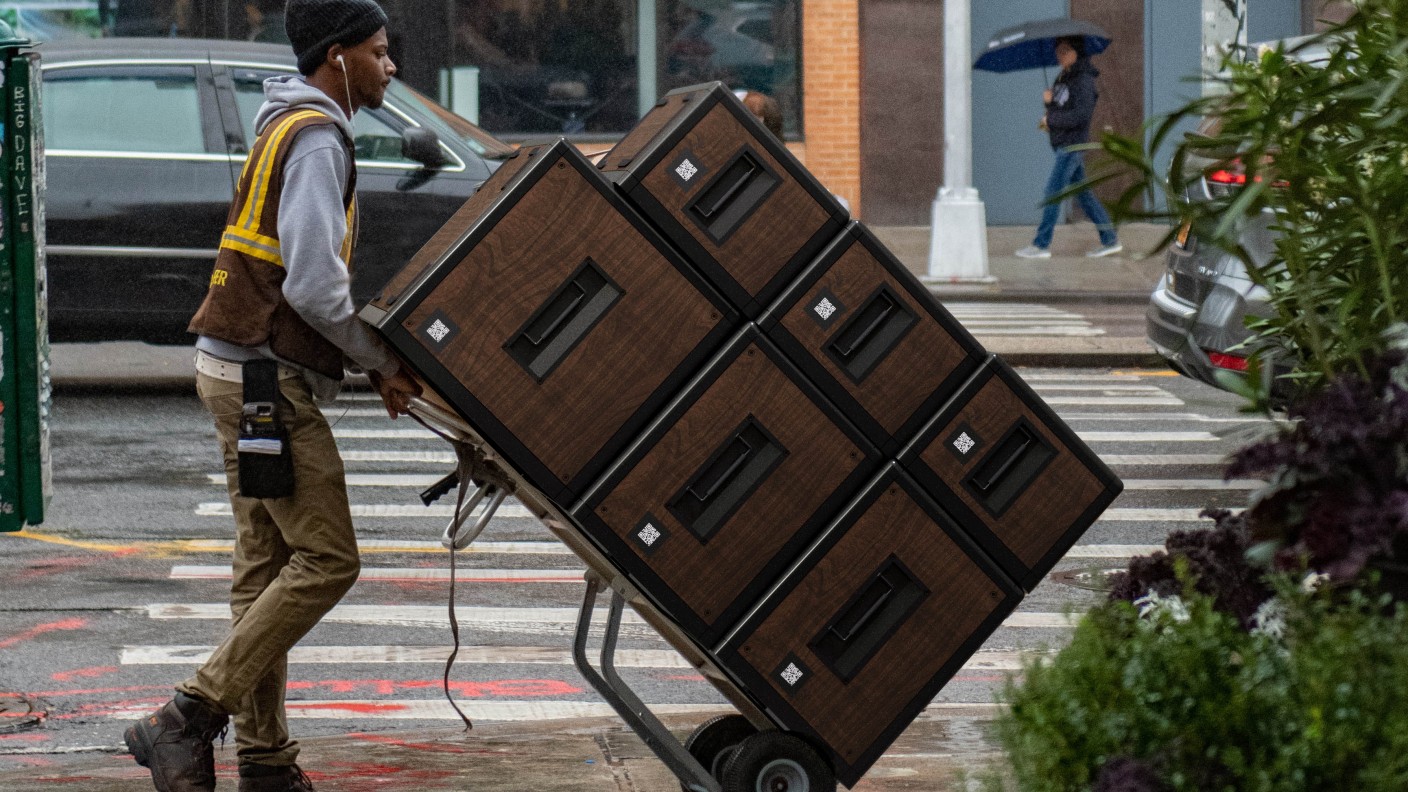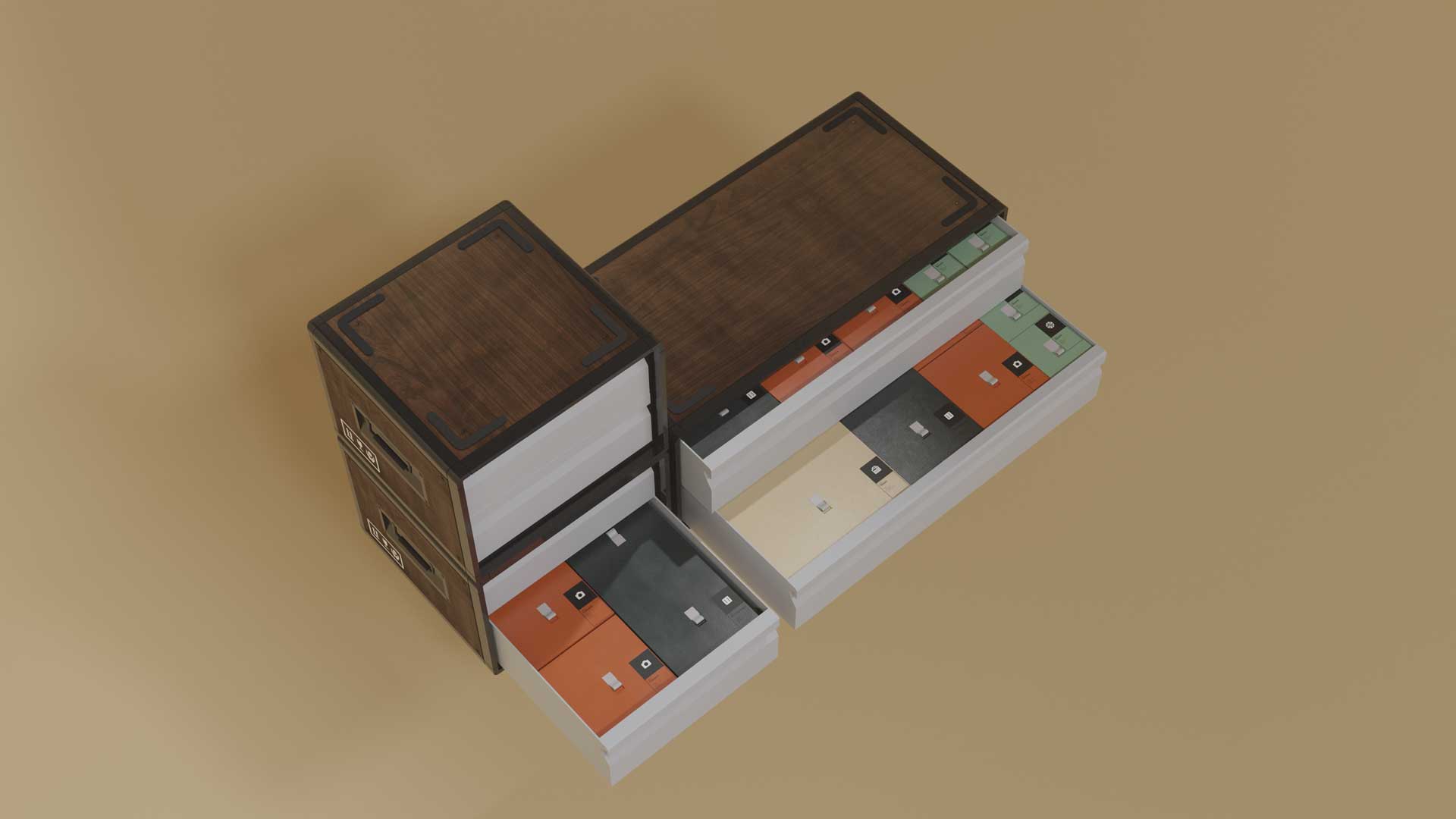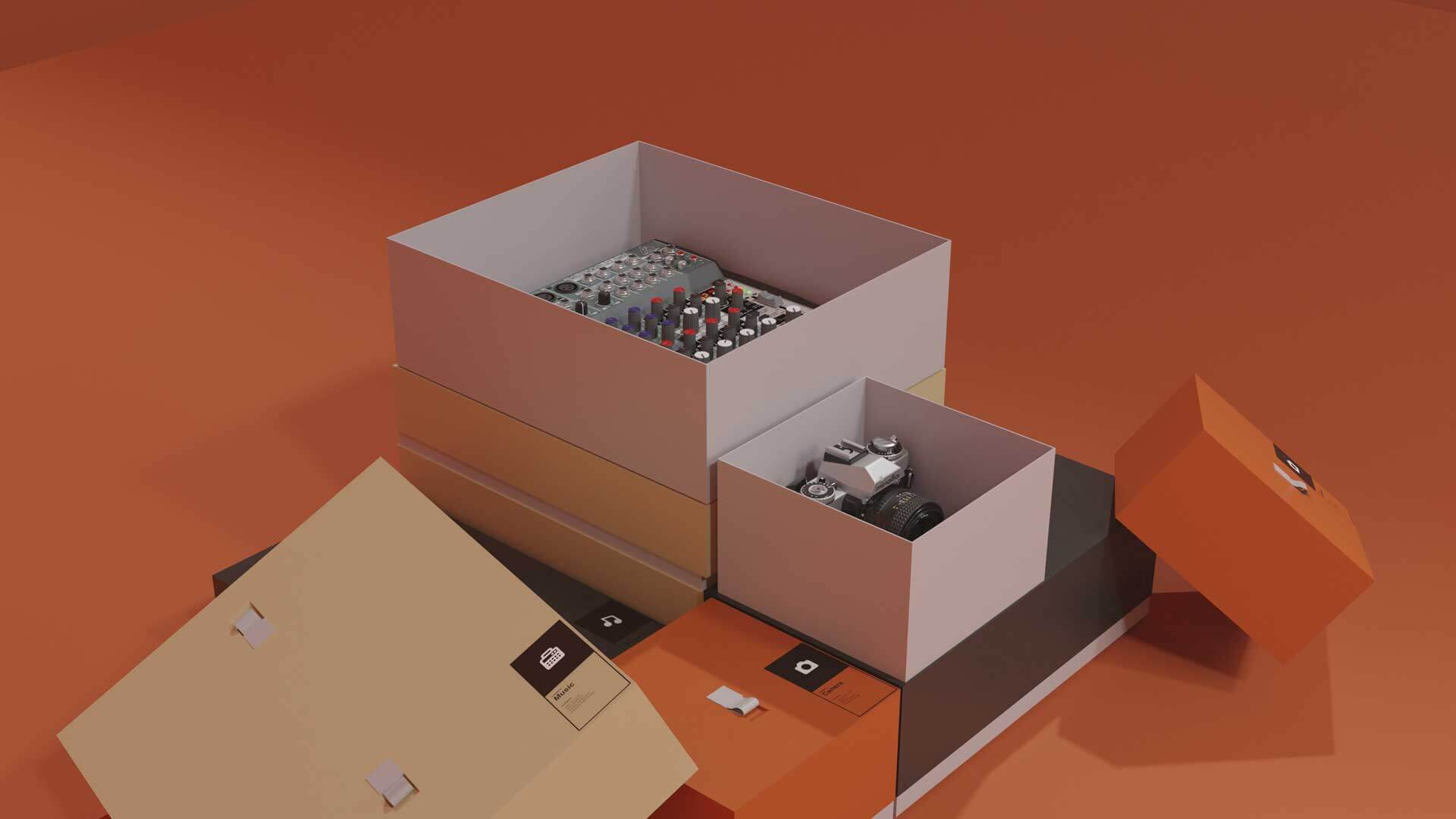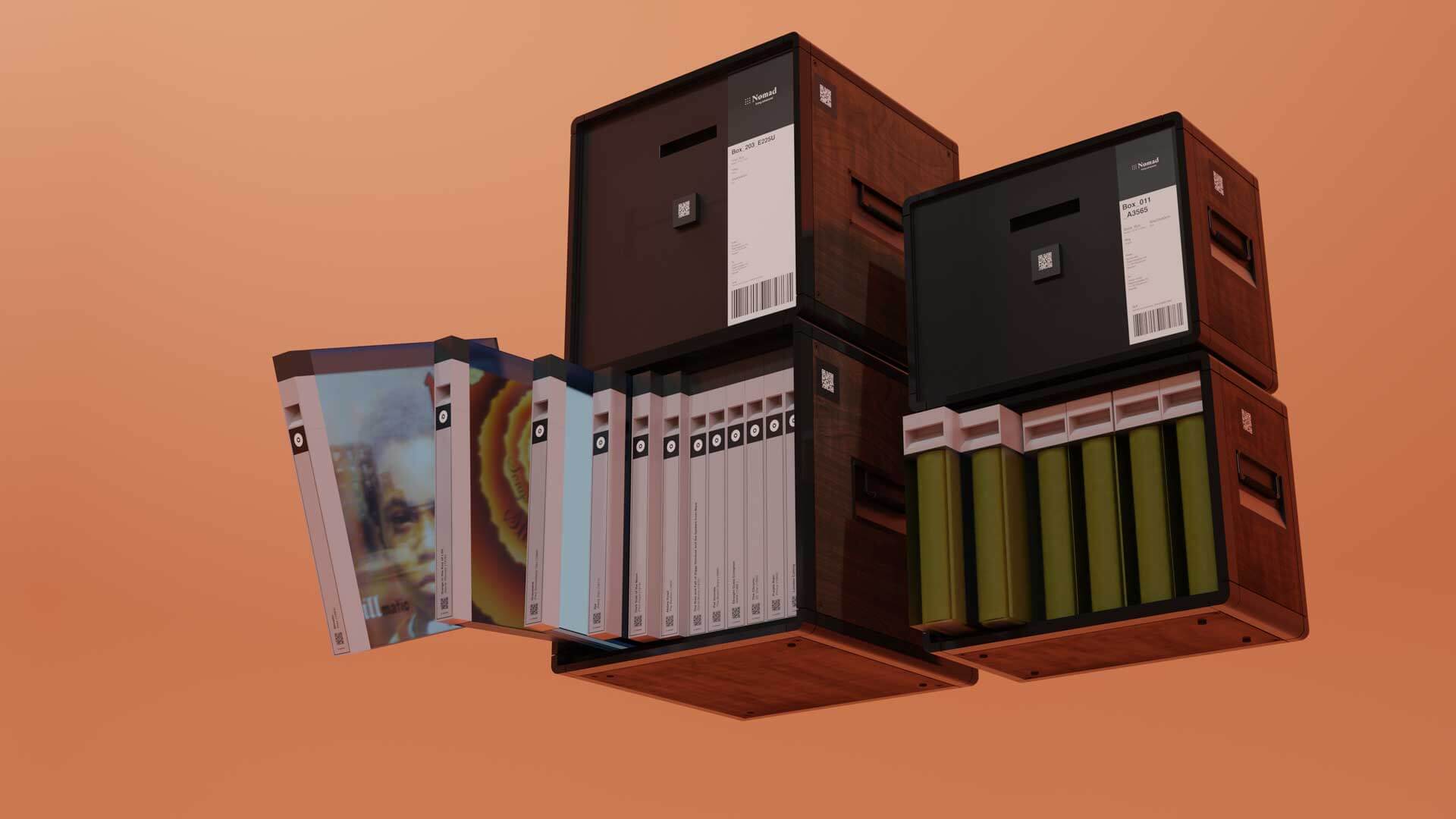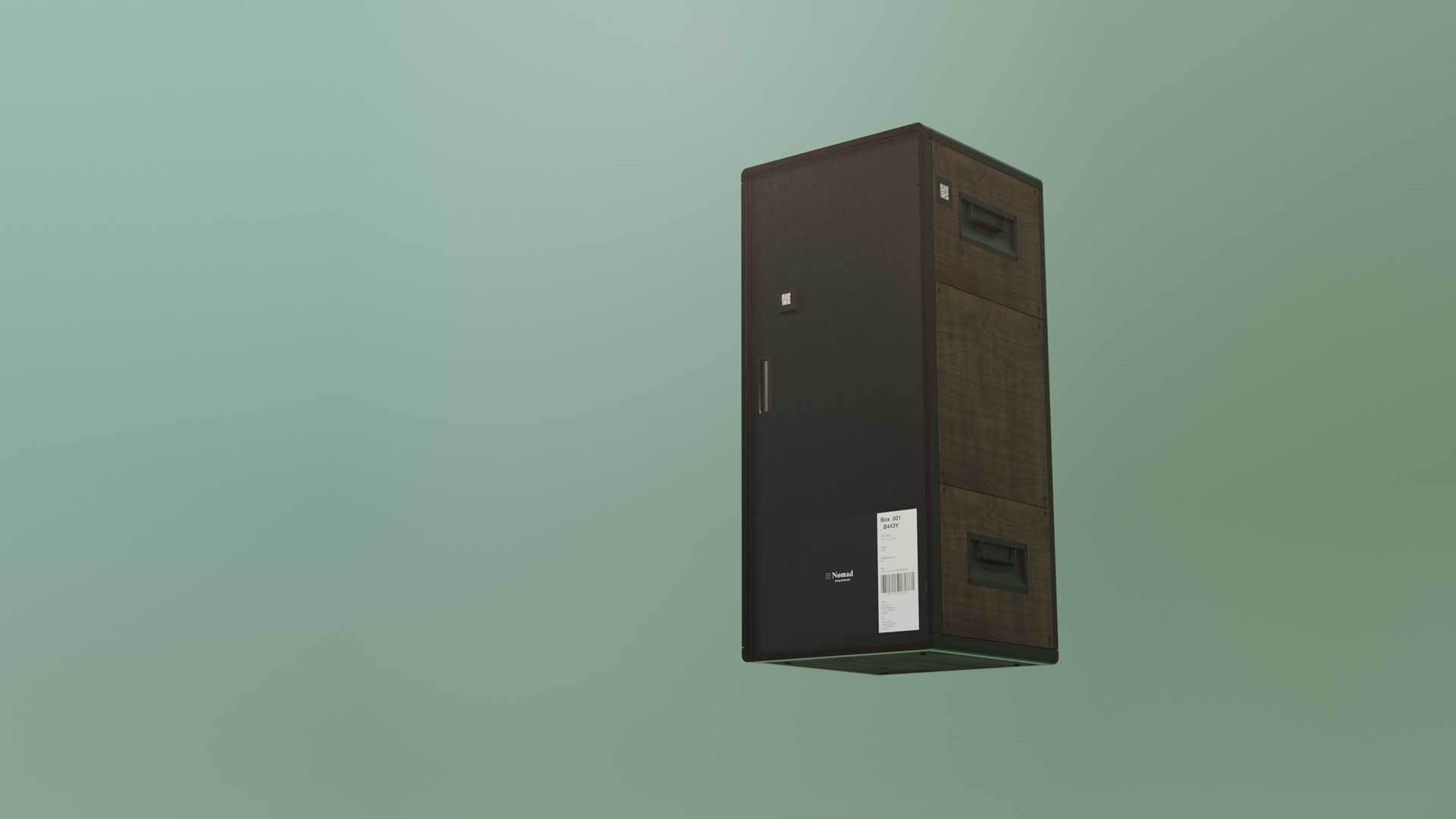Due to the pandemic, an ever-increasing number of people are working remotely. In the future, a lot of employees will not be tied to just one place. Therefore, we have assumed that the trend of digital nomads will be an ever more important aspect in tomorrow’s society. The result was "Nomad". A service that offers a storage and logistics service for the new generation of digital nomads. Imagine it like a cloud for your physical objects.
How might we react to the upcoming trend of working remotely?
Scenario
As a result of the Corona pandemic, more and more people have been able to work from home. Working remotely has become especially common in advanced economies. Despite the end of the pandemic, it has become an important part of the new way of working. In our scenario, we assume that the lifestyle of digital nomads will move more and more into the center of society due to the freedom they have gained. We want to respond to this trend with Nomad. However, the current lifestyle of digital nomads demands renunciation and minimalism. In the future, their own possessions will prevent many from taking advantage of the freedom of the home office.
Action
A logistics and storage service was developed in response to the possible future lifestyle. The frontstage actions of the service consist of a cabinet collection and an inventory app. The service enables the new generation of digital nomads to travel carefree from one place to another. With Nomad they can take their "home" with them or store personal items in a "cloud" for objects. Thus, on-demand, one's own items can be ordered in the Nomad application. The selected items are assembled and shipped in the appropriate Nomad - Closets as needed. Through global warehouses, the service can be flexibly accessed worldwide. This is intended to relieve the new generation of digital nomads of the constraints of their own possessions, without them having to give up anything.
How
The pandemic has significantly changed the way we work together. Home office, which was still very exotic in Germany, has suddenly become the reality for most advanced economy sectors. According to studies, however, this will not end with the pandemic. More and more employees and employers see a benefit in remote working. We took this trend into account and created scenarios based on it, on how we will work and live in the future. We collected signals in various directions, such as companies in Fluid Offices or Liquid Workforces. In this signal collection, we found the developing trend of digital nomads. Therefore, we assume that the trend of digital nomads will be an increasingly important aspect of tomorrow's society.
Scenario Building
In our scenario development, we started with the question, "What if I can work from anywhere? " We used methods from speculative design to further expand the scenarios and understand societal and cultural changes.
In the process, we generated 4 scenarios. The parameters were: How settled or nomadic people want to live and how homebound they still are. We decided on the scenario that the potential trend could increasingly shift to digital nomadism, with the premise that people are less homebound. This advanced economy people would take advantage of the given freedoms and have an increasing urge to work anywhere in the world. In our secondary research, we came across results from Airbnb that found a sharp increase in long-term bookings and a shift in user behavior toward digital nomadism. We picked up on this scenario with Nomad and designed a service that could find a market in 3-5 years.
